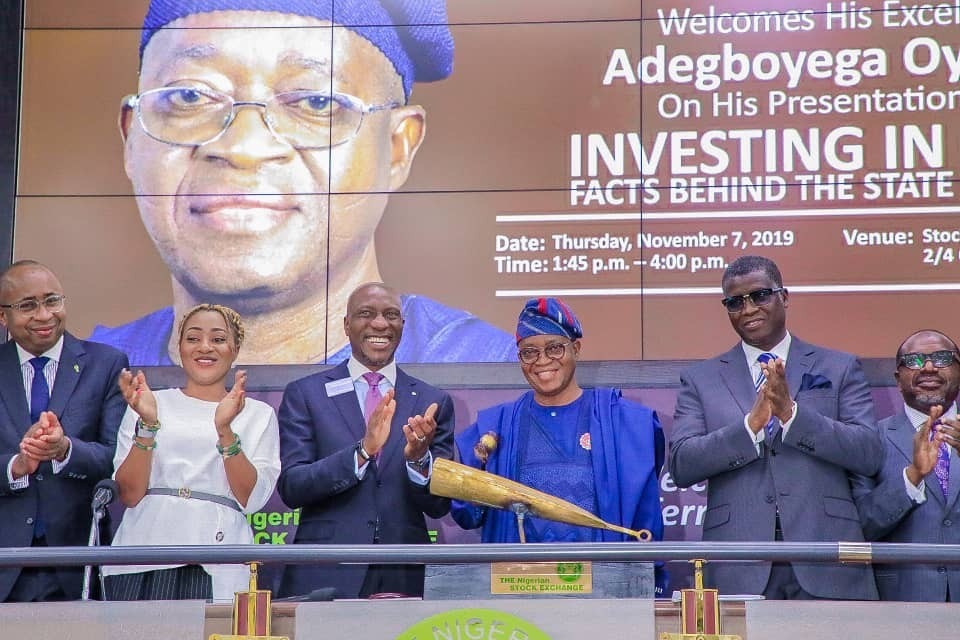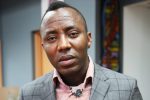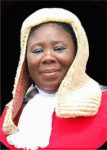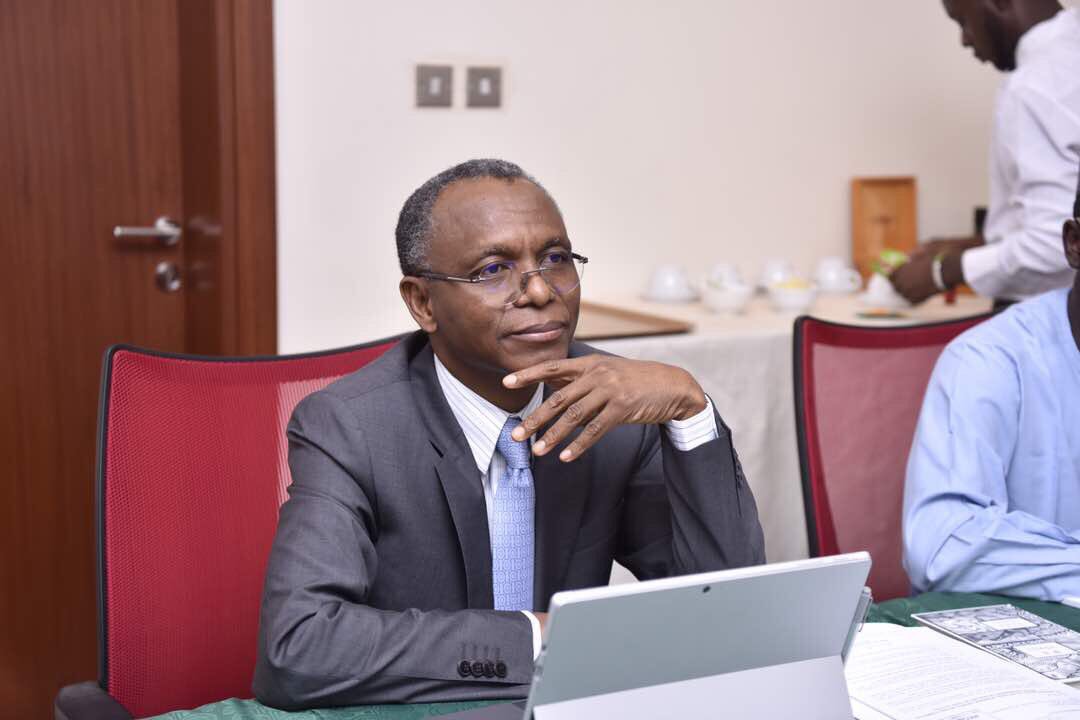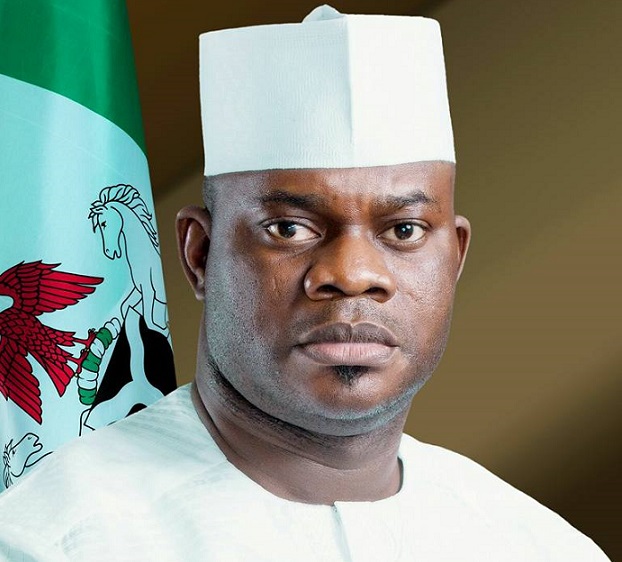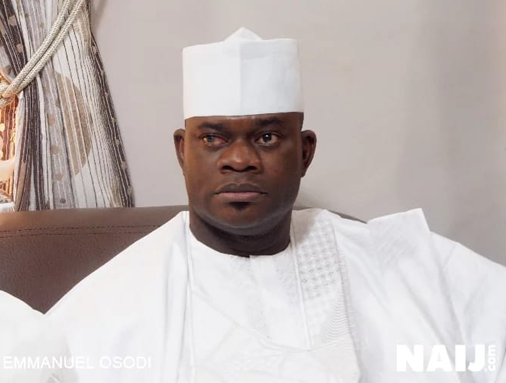By Olowogboyega Oyebade
Are you aware that the Governor of the State of Osun, Mr Adegboyega Oyetola was invited to the floor of the Nigeria Stock Exchange last week to ring a bell, the bell of prosperity for our State? Do you know that we have the opening bell referring to the moment a securities exchange opens for its normal daily trading session and the closing bell brings a trading session to an end the process of exiting a trade a financial transaction? Do you know that the time and conditions of the opening bell differ from one exchange to another? Do you know that despite automation, there are symbolic ringing of the bell? Do you know that Nasdaq exchange does not have physical trading floor and the opening of the market is referred to as the opening bell? Do you know that the physical ringing of the opening bell has become a ceremonious event where dignitaries visiting the stock markets or companies that are trading for the first day are given the honor of ringing the bell to draw attention to something important to investments? Do you know that the Governor of our State visited the Exchange to ring the symbolic bell of prosperity on Thursday 7th November, 2019 to formally invite the investing community to our State through the Osun Economic and Investment Summit coming up this month between 19 -21 Nov., 2019? Come along, please.
Do you know that a stock exchange is a facility where stockbrokers and traders can buy and sell securities, such as shares of stock and bonds and other financial instruments? Do you know that Securities traded on it could be done directly on the floor or by using an electronic trading platform? Are you aware that in order to be able to trade a security on a certain stock exchange, the security must be listed there? Are you aware that Economic Historians were not of one opinion on the date and where it originated? Do you know that while some agreed that trading in stock began in Antwerp in 1531, Lyon in 1548 and Frankfurt in 1585, some others held that it was first traded by the Dutch East India Company in Amsterdam in 1602?
Do you know that trade on an exchange is restricted to brokers who are members of the exchange? Do you know that modern electronic communication networks have created alternative trading systems and have taken much of the trading activity away from traditional stock exchanges? Do you know that initial public offerings of stocks and bonds to investors is done in the primary market and subsequent trading is done in the secondary market? Do you know that supply and demand in stock markets are driven by various factors as in all free markets, and mostly impact on the price of stocks? Do you know that trading may be off exchange or over-the-counter… the usual way that derivatives and bonds are traded? Do you know that stock exchanges are part of a global securities market and providing an economic function to creating liquidity to shareholders in providing an efficient means of disposing of shares? Do you know that one clear advantage is that they provide a free flow of capital to finance industrial and business expansion? Do you know that the Italian city-states produced the first transferable government bonds and the Dutch East India Company (VOC) became the first company to issue bonds and shares of stock to the general public? Do you know that the Amsterdam Stock Exchange (now Euronext Amsterdam) was the world’s first official (formal) stock exchange? Are you aware that the company paid an average dividend of over 16% per year from 1602 to 1650 to shareholders? Do you know that in England, King William III sought to modernize the kingdom’s finances to pay for its wars, and thus the first government bonds were issued in 1693 to make the government more liquid and the Bank of England was set up the following year and soon thereafter, English joint-stock companies began going public? Do you know that stock exchanges have multiple roles in the economy.. assist to mobilizing savings for investment, facilitating acquisitions, creating platforms for profit sharing, establishing corporate governance, creating investment opportunities for small investors, creating platforms for Government capital-raising for development projects and serves as a barometer of the economy as the movement of share prices and in general of the stock indexes can be an indicator of the general trend in the economy?
Do you know that the Nigerian Stock Exchange (NSE) was founded in 1960 as the Lagos Stock Exchange on September 15, 1960 when the Stock Exchange Council was inaugurated and operations began officially on 25th August, 1961 with 19 securities listed for trading? Do you know that in 1977, its name was changed to the Nigerian Stock Exchange? Do you know that as at May 31, 2018, it had 169 listed companies with a total market capitalization of over ₦13 trillion and in terms of market capitalization, the Nigerian Stock Exchange is the largest stock exchange in Africa? Do you know that it has been operating an Automated Trading System (ATS) since 27th April, 1999 with facility for remote trading and surveillance? Do you know that trading on The Exchange starts at 9.30 a.m. every business day and closes at 2.30 p.m? Do you know that in order to encourage foreign investment into Nigeria, the government has abolished legislations preventing the flow of foreign capital into the country and this has allowed foreign brokers to enlist as dealers here and investors of any nationality are free to invest? Do you know that Nigerian companies are also allowed multiple and cross border listings on foreign markets? Do you know that the NSE is regulated by the Securities and Exchange Commission, which has the mandate of Surveillance over the exchange to forestall breaches of market rules and to deter and detect unfair manipulations? Do you know that it this market reflects national net worth of wealth? What is National Wealth? Come along, please.
Are you aware that national net worth is the total sum of the value of a nation’s assets possessed by the citizens of a nation at a time minus liabilities? Do you know that it indicates a country’s absorptive capacity to take on debt and sustain spending on capital and technological advancements to create new assets? Do you know what we call high-net-worth individual (HNWI) …a term used by financial services industry to describe persons whose investible assets such as bonds, exceed a given amount with a value greater than US$1 million? Are you aware that the Capgemini and Merrill Lynch World Wealth Report defines an additional class of ultra-high-net-worth individuals (UHNWIs) as those with US$30 million in liquid financial assets or with a disposable income of more than US$20 million? Do you know that at the end of 2018, there were estimated to be just over 14 million HNWIs in the world? Do you know that the United States had the highest number of HNWIs (4,900,000) of any country? Do you know that there are 1.1 million high-net-worth individuals (HNWI) in Nigeria in 2019 out of 203 million Nigerians? Do you know that the entire State of Osun has less than 40 people as high-net-worth individuals?
Have you checked the Global Wealth Report 2019? Do you know that global wealth rose by 2.6% and it was driven by US and China, despite trade tensions as published by Credit Suisse Research Institute on 21 October, 2019? Do you know that in 2019, US, China and Europe contributed the most towards global wealth growth with USD 3.8tn, USD 1.9tn and USD 1.1tn respectively? Do you know that Africa is far away? Do you know that a view of the report in terms of wealth per adult, Switzerland tops the winners (USD 17,790) followed by the United States (USD 11,980), Japan (USD 9,180) and the Netherlands (USD 9,160)? Do you know that estimates for mid-2019 showed that there are now 46.8 million millionaires worldwide? Do you know that the report estimated that only 55,920 adults in the world are worth at least USD 100 million, and 4,830 have net assets above USD 500 million? Do you know that the share of the bottom 90% of the world population accounts for 18% of global wealth, meaning that 10% of the world population is controlling 82% of global wealth? Do you know that this is called aesthetic disequilibrium, much wealth facing much-poverty? Do you know that from the report China has become increasingly important to the world economy accounting for two thirds of real wealth gain since 2008? Do you know that wealth growth in Europe has been negative, in part due to retrenchment of the euro?
Do you know that the report has projected the number of millionaires to reach almost 63 million in the next five years and global wealth is projected to rise by 27% over the next five years, reaching USD 459 trillion by 2024? Do you know that the number of millionaires has also risen globally to 46.8 million in 2019, collectively owning USD 158.3 trillion or 44% of the global total? Are you aware that China and other emerging markets have contributed significantly to this growth? Are you aware that the emerging markets referred to in the report are China, Argentina, Brazil, Chile, Colombia, Czech Republic, Egypt, Greece, Hungary, India, Indonesia, Korea, Malaysia, Mexico, Pakistan, Peru, Philippines, Poland, Qatar, Russia, Saudi Arabia, South Africa, Taiwan (Chinese Taipei), Thailand, Turkey and United Arab Emirates? Can you see that Nigeria is not there? Do you know that the 30 largest countries by net national wealth (in billions USD) in 2019 have been published? Do you know that Nigeria is not there? Do you know that the total global wealth is put at $360.6 trillions? Do you know that North America has $114.6 trillion or 31.8%, Europe has $90.8 trillion or 25.2%, Asia-Pacific (excluding China and India) has $64.8 trillion or 18%, China has $63.8 trillion or 17.7%, India has $12.6 trillion or 3.5%, Latin America $9.9 trillion or 2.7% and Africa has $4.1 trillion or 1.1%? Do you know that the median and mean wealth per adult puts Angola in 139th position, Ethiopia in 140th position, Tanzania in 141st position, Rwanda in 142nd position and Nigeria in 143rd position, ranking in nearly the same bracket with Djibouti 145th, Cameroon, 146th, Mauritania 147th and Benin Republic 150th positions? Do you know that the global wealth increased by 14 trillion USD last year but the wealth of Nigeria declined? Do you know that there were 1.2 million billionaires in Nigeria in 2018 but now reduced to 1.1 million in 2019, an un-triumphant entry?
Do you know now see why Governor Oyetola is desperate to fast track economic diversification through industrialisation, agriculture, mining and innovation? Do you now see why our State is offering a number of incentives to investors including ease of doing business and acquisition of the certificate of occupancy (C-of-O) within 90 days? Do you know that Governor Oyetola got reassurance of the investing community from the speech of the Chief Host? Excerpts from the speech cuts in:
“Members of the Executive Committee, Heads of Department and Staff of The Nigerian Stock Exchange, Distinguished Ladies and Gentlemen. On behalf of the National Council and Management of The Nigerian Stock Exchange, it gives me great pleasure to welcome His Excellency, the Governor of the State of Osun, Mr. AdegboyegaOyetola and the entire State delegation to the Nigerian Stock Exchange.
Your Excellency, we applaud your leadership and efforts at revitalizing the Education, Mining, Agriculture, Textile and Tourism sectors in the State. Your passion for excellence, dedication to promoting the people of the State and revitalising moribund projects across the state has been recognized globally. We specifically commend the State Government on the execution of a partnership agreement with the Federal Government to develop Gold mining potentials of the state. We also acknowledge His Excellency’s efforts in this area as we trust that this would improve internally generated revenues (IGR) and ramp up jobs creation opportunities for the benefit of the people of the State.
Indeed, the IGR drive has yielded significant results for the N1.47 trillion state economy. In the first half of this year alone, the State has generated over N10.2 billion in revenues, equivalent to the entire sum (N10.4 billion) collected for the whole year in 2018, according to data from the National Bureau of Statistics.
Here at the Nigerian Stock Exchange, we recognize that the future of our great nation rests in our ability to work across sectors to build an environment that promotes economic growth and development, ultimately benefitting the people of our country.
To build a sustainable economy for the estimated 4.31 million citizens of Osun, supported by vibrant sectors and diverse enterprises, both state owned and private sector enterprises will require access to right sized capital. Accordingly, our capital market platform is geared at attracting investors towards all the sectors of the economy whilst catering for small, medium and large businesses represented on the various boards of the Nigerian Stock Exchange. These boards include: The Premium, Main and Growth Boards – The Growth Board is specifically designed to support emerging companies with high growth potential in Nigeria. Over the last few months, I have been impressed by the passion demonstrated by the Government and people of the State towards building a sustainable economy and moving the state from a civil service state to a regional commercial and industrial hub. This commitment is demonstrated by the proposed OsunEconomic and Investment Summit scheduled to hold later this month, with the primary aim of emphasizing the State’s Developmental Agenda of sustainably repositioning the State economy and delivering prosperity to all Osun people.
The State Government shall be looking inward to grow the immense economic potential as well showcase Osun as a strategic location for industrialization. This is going to be a paradigm shift in the economy as it has strategically positioned to explore its mining assets which if properly harnessed can help boost the economic potentials of the state. The Government is also looking to revitalize the tourism sector through exploration of the economic potentials at Osun Grove, Olumirin Waterfalls, OpaOranmiyantourist site to mention a few.In view of the laudable achievement by the State Government and the ongoing revitalization of some state-owned commercialized entities, we hereby recommend the consideration of Capital Market solutions by way of Debt & Equity instruments for the re-capitalization and revitalization of these institutions for optimum capacity utilization and investment returns. Examples of such institutions are; Omoluabi Mineral Promotions Company and The MKO Abiola Airport project.
We are most privileged to welcome His Excellency, the Governor of Osun State, Mr. Adegboyega Oyetola and his team to The Exchange, because we recognize that the ambitions of the State and capital market are inextricably linked. Your Excellency would recall that we have made a case for the role of the Nigerian Stock Exchange in State Economic Development, at both the National Economic Council and the Nigerian Governors’ Forum. The State of Osun, in particular, has a remarkable track record of capital market credentials: The State has raised about N41 billion from the capital markets over the past ten years. The first issuance of sovereign Sukuk bonds in Nigeria was in 2013 by the State of Osun, through the Osun Sukuk Company Plc, which issued a N11.4bn bond in 2013, for the construction of 26 millennium model schools. The State alongside Morgan Capital Securities Limited own 83% shares of Omoluabi Mortgage Bank which was the first-listed firm on the Alternative Securities Market of the Exchange. As we continue to develop The Exchange to attract local and international investors, we wish to partner with the State and its agencies to achieve the benefits of privatisation of its state owned enterprises and other initiatives of both entities across various sectors.
Distinguished Ladies and Gentlemen, I would like to state that the NSE is committed to supporting The State of Osun under the leadership of His Excellency. To this end, as we have witnessed today’s symbolic closing gong ceremony by His Excellency, we are optimistic that this will further strengthen our collaboration towards advancing the fortunes of State together. Thank you for listening distinguished ladies and gentlemen; I would now invite His Excellency, Mr. AdegboyegaOyetola to deliver the Facts Behind the State Economy speech.”
As you can see, do you know that is the core mandate of the Economic and Investment Summit? Do you know that Osun is host to at least 10 mineral deposits, including Gold and this Government is ready to walk the talk under a public-private-partnership (PPP) model? Do you know that this State has embarked on economic reforms aimed at enhancing ease of doing business through the provision of infrastructure like roads, rail, and cargo airport? Do you know that the Government has asset tracker to monitor activities in the corridor where mining operations are active? Do you know that this administration is planning to designate one of the academies solely for training of miners? Do you know that the State of Osun has mining titles in Zamfara, Ebonyi and Kogi States? Do you know that currently, one private company ismining 1.5 million ounces of gold worth $2billion? The voice of Governor Oyetola interludes:
“There are a lot of investment opportunities in Osunthat the rest of the world does not know about and we want to showcase these to prospective investors during the Economic Summit.”
Do you know that in 2019, 70 percent of the poorest people in the world are currently living in Africa as against 50% of them living here in 2014? Do you know that it has been predicted that by 2023, Africa’s share will rise to over 80%? Do you know that these are statistics bothering some people in the world, including Warren Edward Buffett and Bill Gates? Do you know that Warren Buffett (born August 30, 1930) is an American business magnate who is the CEO of Berkshire Hathaway with a net worth of US$82 billion as of July 18, 2019, making him the third-wealthiest person in the world? Do you know that Buffett is a notable philanthropist, having pledged to give away 99 percent of his fortune to philanthropic causes, primarily via the Bill & Melinda Gates Foundation? Are you aware that he founded The Giving Pledge in 2009 with Bill Gates, whereby billionaires pledged to give away at least half of their fortunes? Do you know that he continues to live in the same house he bought in 1958? Do you know that he named his private jet “The Indefensible” in 1989 because he saw its maintenance as expensive and he abandoned it to prove frugality? Do you know that he goes by public transport? Do you know that on 1st August, 2016, Buffett challenged Donald Trump to release his tax returns? Do you know that we now have Buffett Rule on Taxes? What is it? Come along, please.
Buffett noted that he only paid 19% of his income for 2006 ($48.1 million) in total federal taxes (due to their source as dividends and capital gains), while his employees paid 33% of theirs, despite making much less money. The conscience of Buffet pricked him as he queried: “How can this be fair? How can this be right? There’s class warfare, all right, but it’s my class, the rich class, that’s making war, and we’re winning.” Do you know that Buffet has started another campaign on tax to make poor people win the ‘Tax War’? Warren Buffett cuts in: : “ We should raise taxes on the rich—it won’t make them flee…The wealthy are definitely under-taxed relative to the general population…..” andthe richest 10 percent of people worldwide own 85 percent of global wealth. The voice of Buffett cuts in again: “Expand the earned income tax credit, which benefits people with low incomes. Even though “that probably means more taxes for guys like me. I’m fine with it.”
Do you know that Bill Gates shared the same persuasion on tax with Buffett? He expressed to CNN’s Fareed Zakaria during a 2018 interview: “I need to pay higher taxes. I’ve paid more taxes, over $10 billion, than anyone else, but the government should require people in my position to pay significantly higher taxes. There’s no doubt that what we want government to do in terms of better education and better health care means that we need to collect more in taxes. …And there’s no doubt that as we raise taxes, we can have most of that additional money come from those who are better off.”Do you know that as we grow the economy through economic summits to link the investing public to economic opportunities in our State, do you know that those who are gainfully employed need to adopt the Buffet Rule and offer to pay taxes to support the good efforts of this administration as it marches to second year this month to put us on a good anchor? Why?
Do you know that between June 2018, and June 2019, four million Nigerians joined the Poverty Club? Are you aware that the World Poverty Clock revealed that 91,885,874 people in Nigeria now live in extreme poverty line of $1.90 which translates to N693.5 per day as against 87 million people living in poverty in June 2018 which made the World Poverty Clock to name Nigeria the poverty capital of the world? Do you know that it has been predicted that extreme poverty in Nigeria may increase by 2030 if quick steps are not taken? Do you know that one of the quick fixes prescribed for us is to invest in girls’ education as Nigeria Nigeria is home to over 10 million out-of-school children including girls? Do you know that we are advised to invest heavily in health and well-being to battle seriously with a number of crushing health indicators including malaria, tuberculosis and infant and maternal mortality, all of which have a sweeping impact on productivity? Do you know that the third therapy recommended for us is to expand economic opportunities and embrace technology to ending poverty in Nigeria and our State? Can you now see why the Governor in his first year anniversary isembarking on educational reforms that will focus on developing new skills through robust and well-funded technical and vocational education and training programmes for those millions of Nigerians outside the formal school system? Do you see why he is focusing on reforming the health sector in terms of infrastructure and Health Insurance Policy? Can you now see why he wants to unlock private-sector partnerships through incentives and social impact bonds as well as boosting entrepreneurial eco-systems to spur growth in our State? Do you now see why we have to ring the bell of collective prosperity with him as he moves to the second year of his administration on 27th Nov., 2019? Do you know that we have to stand up collectively to the challenge of Bill Gates as contained in his speech delivered to all of us and on 27th March, 2018. Bill Gates interludes: cuts in:
“At some point during every visit, some brave person eventually asked me—very politely—“Why are you actually here?” It’s an understandable question. Most American technology guys don’t wander around Nigeria learning about its health system. But I think I have a good answer. When we started Microsoft 40 years ago, we wanted to build a successful business, but we also wanted to make people’s lives better. … As I got older, …I realized that billions of people had a problem that computers couldn’t solve. They lacked the basics of a good life: food, shelter, health, education, and opportunity. And so I started my second career with my wife Melinda. With the money I’d been lucky enough to earn at Microsoft, we started working toward a different goal: a healthy and productive life for everyone. That’s why I come to Nigeria… We have committed over $1.6 billion in Nigeria so far, …..
I’m blown away by how much Nigeria has changed in the past decade. …This line graph of Nigeria’s per capita GDP shows where those dreams and ambitions can lead. But growth is not inevitable. Nigeria has unmatched economic potential, but what becomes of that potential depends on the choices you make as Nigeria’s leaders.The most important choice you can make is to maximize your greatest resource, the Nigerian people. Nigeria will thrive when every Nigerian is able to thrive.If you invest in their health, education, and opportunities—the “human capital” we are talking about today—then they will lay the foundation for sustained prosperity. If you don’t, however, then it is very important to recognize that there will be a sharp limit on how much the country can grow….Much of Nigeria still looks like a low-income country. Let me give a few examples.· In upper middle-income countries, the average life expectancy is 75 years. In lower middle-income countries, it’s 68. In low-income countries, it’s 62. In Nigeria, it is lower still: just 53 years. Nigeria is one of the most dangerous places in the world to give birth, with the fourth worst maternal mortality rate in the world, ahead of only Sierra Leone, Central African Republic, and Chad.· One in three Nigerian children is chronically malnourished. On immunization, you are already living that lesson…I urge you to apply this thinking to all your investments in your people. ..
To anchor the economy over the long term, investments in infrastructure and competitiveness must go hand in hand with investments in people. People without roads, ports, and factories can’t flourish. And roads, ports, and factories without skilled workers to build and manage them can’t sustain an economy.Inpreparation for my visit, I asked a research institute at the University of Washington to model Nigeria’s economic growth under three scenarios related to health and education, the core of how economists define human capital.
Image 1
If things get worse, it will decline. Unfortunately, this scenario is a very real possibility unless you intervene at both the federal and state levels.
Image 2
However, if you commit to getting better results in health and education—if you spend more and more effectively—per capita GDP will stay on its remarkable pre-recession trajectory.
Image 3
What do I mean by investing in your people? I mean prioritizing health and education, ..—the win-win scenario. In 1978, Dr. OlikoyeRansome-Kuti, who later became the Nigerian minister of health, helped establish primary health care as the global standard. We now know that a strong primary care system takes care of 90 percent of people’s health needs. Tragically, 40 years after Dr. Ransome-Kuti helped other countries set a course for the future, the Nigerian primary health care system is broken. The evidence for this can be found in the epidemic of chronic malnutrition, or stunting. ….The consequences of stunting are devastating. Though stunted children are defined as shorter than average, we’re not particularly concerned about their height. What we’re concerned about is their brains, or what Akin Adesina calls “gray matter infrastructure.”… In Nigeria, one in three children is chronically malnourished and could therefore be at risk. This is a tragedy for each one of these children; it is also a huge blow to the economy. According to the World Bank, addressing the stunting crisis in Nigeria would add almost $30 billion to the GDP. So what will it take to solve stunting? It will take a focus on agricultural development, nutrition, and primary health care.A functioning primary health system has six features:
Image 4
But the graph also shows that you’ve reported zero cases before, only to learn that the disease was still circulating in tiny pockets hidden by insecurity. It would be catastrophic to let your guard down when you’re on the verge of eliminating the disease once and for all.
Image 5
The majority of Nigerian smallholder farmers lack access to the seeds, fertilizer, and training they need to be more productive, and they lack access to the markets they need to profit from their labor….One of the barriers that continues to prevent small holders from thriving is their lack of access to finance. Like good roads, finance connects farmers to opportunity, yet only 4 percent of Nigerian farmers currently have a loan to grow their business. In a country where three quarters of people have mobile phones, digital financial services provide a solution to this problem. In fact, digital finance offers the potential to boost the economy from top to bottom. Right now, more than 50 million Nigerian adults are at the whim of chance and the informal economy. With access to digital financial tools, they can cope better with disasters that threaten to wipe them out, build assets and a credit history, and gradually lift themselves out of poverty….According to the best estimates, digital financial services will create a 12.4 percent increase in Nigeria’s GDP by 2025. Meanwhile, oil accounts for about 10 percent of Nigeria’s GDP. Imagine adding another oil sector and then some to the economy, but one whose benefits spread far and wide and reach almost every single Nigerian.
Image 6
There is another benefit to digital financial services that will make everything I’m urging you to do much easier: it will vastly improve the government’s ability to tax and spend efficiently…Nigeria’s government revenue as a percentage of its GDP is by far the lowest in the world, at 6 percent. That makes investing in your people difficult. The next lowest country, Bangladesh, collects 10 percent of its GDP. If you got yourself up to second-to-last in the world, you would have an extra $18 billion to budget. Obviously, you’re aiming higher than that, but it gives you some idea about the scale we’re talking about.
Image 7
We want to support you in your work to mobilize more resources to invest in your country. …Right now, Nigeria’s fiscal situation is at what you might call a low equilibrium. In return for low levels of service, people pay low levels of tax. We hope to help you reach a higher equilibrium rooted in effective and transparent investments in people. This equilibrium would trigger a virtuous cycle…Triggering that cycle will require bolder action—action you have the power to take as leaders, governors, and ministers focused on Nigeria’s future….The Nigerian private sector will continue to invest. We are eager to help, but we know we can’t lead. You must lead.
Image 8
And that means that the future depends on all of you—and your leadership in the years to come. Thank you.
Let us cooperate with the present administration in the country and our State. We join millions of people to congratulate our Governor on the first year anniversary. And to all the people of the State, let us ring the bell of prosperity together.

